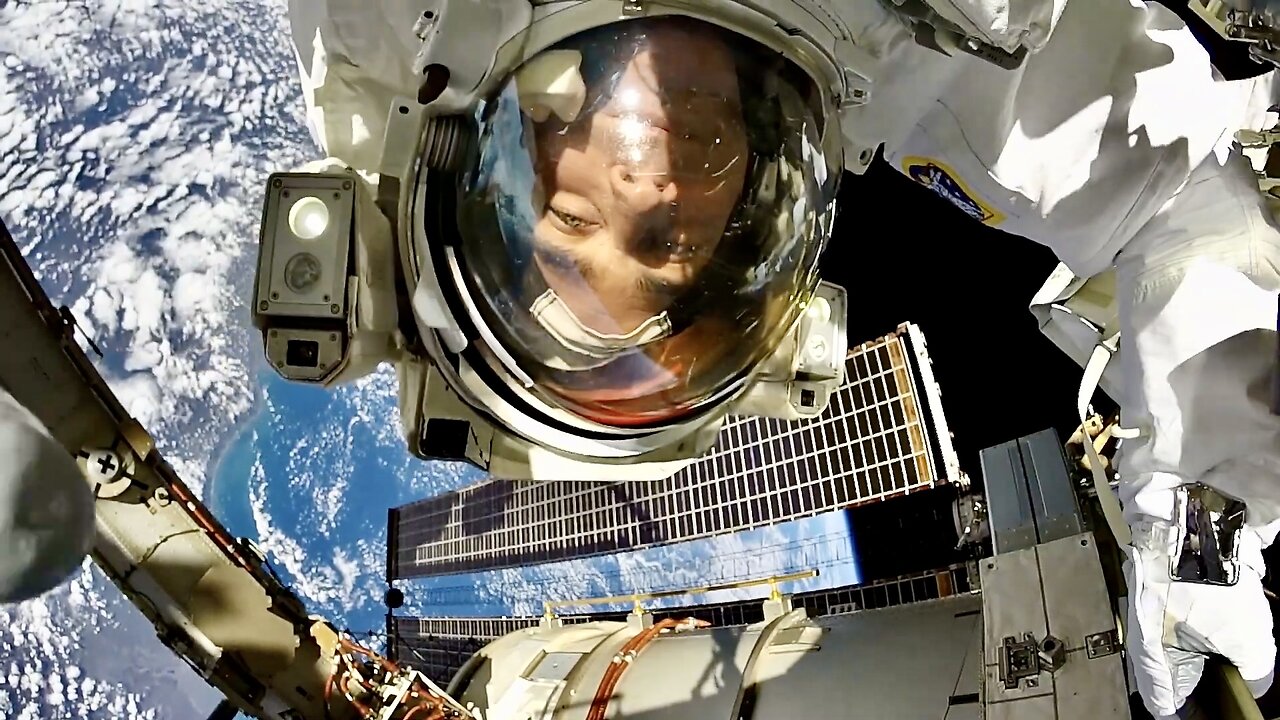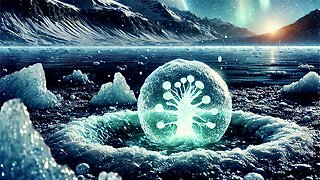Premium Only Content

How To Become An Astronaut With NASA
Astronaut Selection and Training-- Following the preliminary screening of applications, a week-long process of personal interviews, medical screening, and orientation are required for both civilian and military applicants under final consideration. Once final selections have been made, all applicants are notified of the outcome. Selected applicants are designated Astronaut Candidates and are assigned to the Astronaut Office at the Johnson Space Center (JSC) in Houston, Texas. The Astronaut Candidates undergo a training and evaluation period lasting approximately 2 years. During this time they will participate in the basic Astronaut Candidate training program, which is designated to develop the knowledge and skills required for formal mission training upon selection for a flight. Military Astronaut Candidates with a jet piloting background maintain proficiency in NASA aircraft during their candidate period.
As part of the Astronaut Candidate training program, candidates are required to complete military water survival before beginning their flying syllabus, and become SCUBA qualified to prepare them for spacewalk training. Consequently, all Astronaut Candidates are required to pass a swimming test during their first month of training. They must swim 3 lengths of a 25-meter pool without stopping, and then swim 3 lengths of the pool in a flight suit and tennis shoes with no time limit. They must also tread water continuously for 10 minutes wearing a flight suit. Candidates are also exposed to the problems associated with high (hyperbaric) and low (hypobaric) atmospheric pressures in the altitude chambers and learn to deal with emergencies associated with these conditions. In addition, Astronaut Candidates are given exposure to the microgravity of space flight during flights in a modified jet aircraft as it performs parabolic maneuvers that produce periods of weightlessness for about 20 seconds. The aircraft then returns to the original altitude and the sequence is repeated up to 40 times in a day. Final selection as an astronaut will depend upon satisfactory completion of the training and evaluation period. Graduation from the Astronaut Candidate Program will require successful
completion of the following: International Space Station systems training, Extravehicular Activity skills training, Robotics skills training, Russian Language training, and aircraft flight readiness training. Civilian candidates who successfully complete the training and evaluation and are selected as astronauts become permanent Federal employees. Civilian candidates who are not selected as astronauts may be placed in other positions within NASA, depending upon agency requirements and workforce constraints at that time. Equal opportunity in employment means opportunity not just for some but for all. NASA provides equal opportunity in Federal employment regardless of race, color, gender, national origin, religion, age, non-disqualifying physical or mental disability, genetic information, sexual orientation, status as a parent, or gender identity.
To be considered for an astronaut position, applicants must meet the following qualifications:
Be a U.S. citizen
Have a master’s degree* in a STEM field, including engineering, biological science, physical science, computer science or mathematics, from an accredited institution.
Have a minimum of three years of related professional experience obtained after degree completion (or 1,000 Pilot-in-Command hours with at least 850 of those hours in high performance jet aircraft for pilots) For medical doctors, time in residency can count towards experience and must be completed by June 2025.
Be able to successfully complete the NASA long-duration flight astronaut physical.
*The master’s degree requirement can also be met by:
Two years of work towards a doctoral program in a related science, technology, engineering, or math field.
Completed Doctor of Medicine, Osteopathic Medicine, or related medical degree
Completion (or current enrollment that will result in completion by June 2025) of a nationally recognized test pilot school program.
#adventure
#explore
#space
-
 48:29
48:29
Seeker Land
24 days agoSnowball Earth ~ The Cryogenian Ice Age That Birthed Complex Life On Earth
1511 -
 1:21:03
1:21:03
Russell Brand
5 hours agoBREAK BREAD EP. 13 - WESLEY HUFF
149K6 -
 DVR
DVR
Game On!
2 hours ago $0.55 earnedRoger Goodell is FURIOUS at NFL fans who think Mahomes gets special treatment!
5.89K3 -
 10:31
10:31
Melonie Mac
3 hours agoMy Fantastic Four Movie Trailer Impressions
12.8K8 -
 2:08:22
2:08:22
The Quartering
7 hours ago20,000 Feds QUIT, DOGE Workers Lives At Risk, Trump Vs Dept Of Education, Brie Larson Based & More
104K74 -
 1:23:15
1:23:15
vivafrei
20 hours agoLive with Enrique Tarrio! Jan. 6 Lawfare ON STEROIDS! Proud Boys & Beyond!
106K41 -
 1:15:01
1:15:01
Savanah Hernandez
4 hours agoEl Salvador offers to take in U.S. prisoners while Elon’s autists take on the deep state
19.7K7 -
 7:12
7:12
Tactical Advisor
6 hours agoBudget 2011 That Uses Glock Mags?! | Fusion Firearms 2025
18.9K1 -
 58:19
58:19
Ben Shapiro
6 hours agoEp. 2131 - Trump and Musk Bring The CHAINSAW
100K70 -
 1:12:31
1:12:31
Russell Brand
7 hours agoTrump’s Trade Wars: Power Plays and Global Repercussions – SF531
111K39